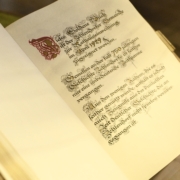Day 29: The Remodel
 At POETRYisEVERYTHING, for Day 29 of National Poetry Month, Chris Jarmick assigned a house remodel poem. He also made some lovely, encouraging comments about the challenge to write a poem a day this month, for instance:
At POETRYisEVERYTHING, for Day 29 of National Poetry Month, Chris Jarmick assigned a house remodel poem. He also made some lovely, encouraging comments about the challenge to write a poem a day this month, for instance:
“And if you’ve paid a little more attention to poetry during our month long sharing of prompts and writing —thank you… I know good things will come of it.”
Because of Chris, I also have become a subscriber at Elsewhere in the Rain (the link should take you to a post that includes a list of poetic terms), which I highly recommend.
So here is my poem. Er, draft of a poem. May good things come to you.
I’m not sure why, but I have been thinking
about how death reorganizes us.
I don’t mean anything simple, no cleaning out of closets,
it’s more than donating the old suits
and scuffed shoes to Good Will,
throwing out the years of National Geographics
and Good Housekeeping. Something more primal,
more like remodeling, tearing out closets,
breaking out a window to add a cupola
or a deck, making the kitchen brighter,
expanding the bathroom to make room for a tub.
It isn’t our own death that does all this hammering
at the stays of existence. Other peoples’ deaths,
or whatever that category of event
that wakes us, that insists we see
the necessity of a wicker chair under a skylight.
Don’t wait to call the carpenters until things are dire,
until the time is more expedient–
Your own death will arrive one midnight and then your house
will be a small room, smaller than this one
in which you sit and write. You can promise
to write, but no letters arrive from the dead.
There’s no desk there and the ink
in your lucky pen dries up after the first millennium.







 Today’s assignment at
Today’s assignment at 